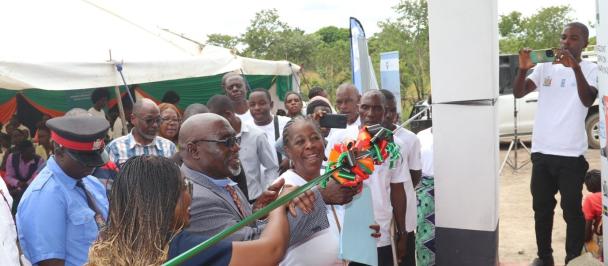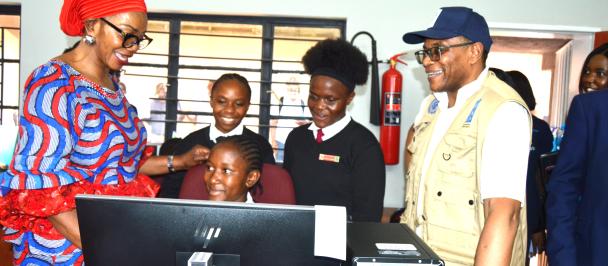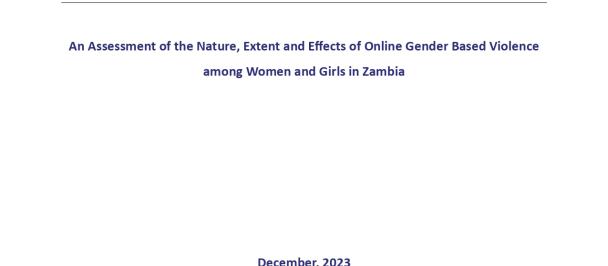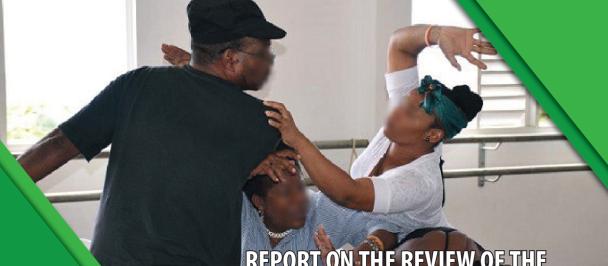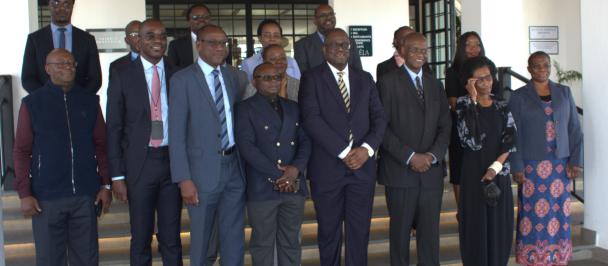Breaking the Silence through GBV Fast Track Courts
January 10, 2018
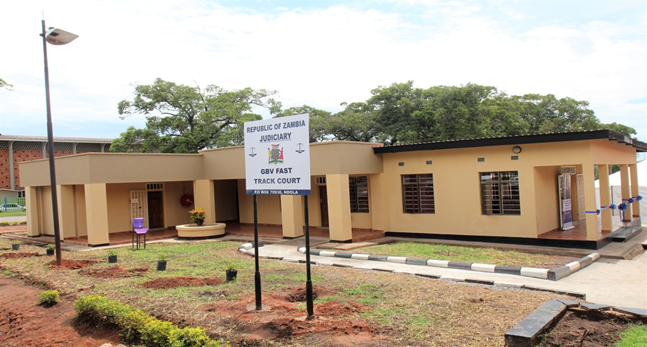
Zambia opens its first Fast Track Court
As one of the most highly populated neighbourhoods of Lusaka Province, Chainda township is known for its undeveloped structures and high crime levels. It is also home to 37 years old *Fred Chama, a married father of two children; a girl and a boy.
Until 2017, he had only heard of Gender-Based Violence (GBV) in relation to wife battery and, as a vice unconnected to him. He never thought it would be him standing in a courtroom trying to seek GBV-related justice.
Reality dawned on him when he found himself reporting a defilement case at Simon Mwansa Kapwepwe Police Post in Chainda. He points out that justice for his 4-year-old daughter would have been elusive for someone of his socio-economic background had it not been for the unconceding effort and advise from personnel at the Police Post and the University Teaching Hospital (UTH).
“I had heard that there is no justice in our courts, that GBV perpetrators are often set free, but the help I received from the police post and UTH showed me that there was hope for justice to prevail over my daughter’s case”, he recollects.
Introducing the Fast Track Court
The anti-GBV Act No. 1 of 2011, which was operationalised in 2013 but was little known to Fred, became a piece of legislation that would help Fred’s daughter access effective justice.
The Act, amongst other objectives, demanded for the establishment of institutional transformations that would help victims access justice freely and expediently. Under the leadership of the United Nations Development Programme (UNDP) and with financial support from the Governments of Ireland, Sweden and the United Kingdom, led to the creation of the GBV and User-Friendly Fast Track Courts (FTC) in six provinces, namely; Eastern, Central, Copperbelt, Lusaka, Southern and Western. It was in the Lusaka Fast Track Court, where Fred’s daughter received her justice and where her perpetrator was sentenced to 15 years imprisonment.
The new Fast Track Courts are safe with separate rooms including a witness room from where a survivor can give evidence using a video and audio link to the court room. The need for the alleged perpetrator and the victim to come into direct contact never arises.
This mechanism provides safety and security for the GBV survivors, which helps cases to be dealt with quickly. It is a model that can be replicated because it is innovative, modern and child friendly.
On his experience with the Fast Track Courts, Fred shared that, “the whole process took at least two months to conclude. The perpetrator was given a sentence of 15 years. I can confirm that he is imprisoned because I went to Mukobeko maximum prison twice to verify and another time my sister verified”
Capacity Building of Key Partners to handle GBV Cases
The Head of the Governance and Gender Programme in UNDP Zambia, Gregory Saili, stated that UNDP Zambia’s involvement in the establishment of the GBV fast track courts, was primarily to strengthen the justice and legal systems to effectively implement the provisions of the Anti-GBV Act. He explains that the GRZ-UN Joint Programme was supported by cooperating partners; the Governments of Ireland, Sweden, and the United Kingdom (UK)– under the UK’s Department for International Development (DfID).
The capacity of law enforcement officers and medical personnel to handle the Fred’s daughter’s case expeditiously, was not a coincidence – it was a testimony of the training that was given to the 50 law enforcement officers, medical personnel and social workers in handling of GBV cases.
In addition to the training of the 50 police officers and judiciary staff to improve their investigative and prosecution skills, UNDP provided a training of police officers in administration of justice for children. In total 130 officers, of which 80 females were trained. Thus, bringing the total number of prosecutors and police officers trained in investigative and prosecution skills to 937 since 2015.
In engaging a multi-sectoral response to the scourge, the GRZ-UN joint programme on GBV launched an alliance between various government institutions, which brought alive the role of partnership and collaboration.
The Executive Director for National Legal Aid Clinic for Women, Mandy Manda, confirms this partnership and its impact on the smooth operation of the Fast Track Courts in providing justice both to perpetrators and survivors of GBV.
“The various institutions involved in the programme worked very well together and provided the necessary specific interventions. Cases have been well-handled, and this demonstrates the collaboration that existed between the different key partners” she said.
The Main Objectives of the Fast Track Courts
Zambia Police Service states that at least one in five women in the country has experienced some form of GBV making the country’s statistics on GBV unprecedented, in the past eight years.
From 2012 the cases reported increased from 12,924 to 22,073 in 2018 with Lusaka, Copperbelt and Central Provinces recording some of the highest numbers. Over 10% of them relate to child defilement, with a high proportion being defilement of the girl child.
Therefore, the main objectives of the Fast Track Courts included:
Saili stated that, “UNDP’s support also provided the training of the paralegal officers, the law enforcement officers and medical personnel, which worked very well to ensure the collaboration we witness today in GBV cases”.
He also pointed out that UNDP contributed to the production of the Rules of Court for the implementation for the Anti GBV Act.
Lessons Learnt
Although no study has confirmed reasons behind the increased number of cases being reported, awareness raised by communities through the community-based alliances, have contributed to the new number of cases. According to the GRZ-UN Joint Programme on Gender Based Violence Terminal Programme Narrative Progress and Financial Report (2013 – 2018) overall, communities’ awareness that GBV is against the law has helped increase GBV cases being reported.
The report further states that there has been “a gradual increase” in the number of cases reported to the police, which it attributes partly to the GBV awareness campaigns in the country support by the Joint Programme. In addition, this response from the general public together with the efficiency and effectiveness of the Fast Track Courts has inspired the UN system (UNICEF, UNFPA, ILO and IOM,) including UNDP to develop a Phase II of the GBV Programme, which will focus on the establishment of courts in the remaining provinces, and a stand-alone one in Lusaka.
Saili underscores that the second phase is expected to strengthen implementation of the legal framework for addressing GBV through harmonizing laws and policies, including customary law for compliance with human rights principles. It will also seek to work towards the transformation of power relations between women and men by addressing root causes such as patriarchy and negative social norms and traditional cultural practices, including transformative approaches that engage men and boys to challenge masculinity and harmful social norms.
*real name withheld to maintain the individual’s privacy

 Locations
Locations